
11 minute read
Striking a Chord
BY ALI LEMMONS | PHOTOGRAPHY BY HACKER MEDIAS
There’s nothing quite like the power of live music. With just a few chords, layered harmonies, or intentional pacing, a good choir or orchestra can have the audience filled with joy or weeping in their seats. Curiously, much of this power comes from the person with their back turned away from audience – the conductor. In these next few pages, we’ll introduce you to six of the Chattanooga area’s most well-known and accomplished conductors. From leading choirs and symphonies to teaching our city’s next generation of musicians, this group is making its mark in the music industry and on Chattanooga.
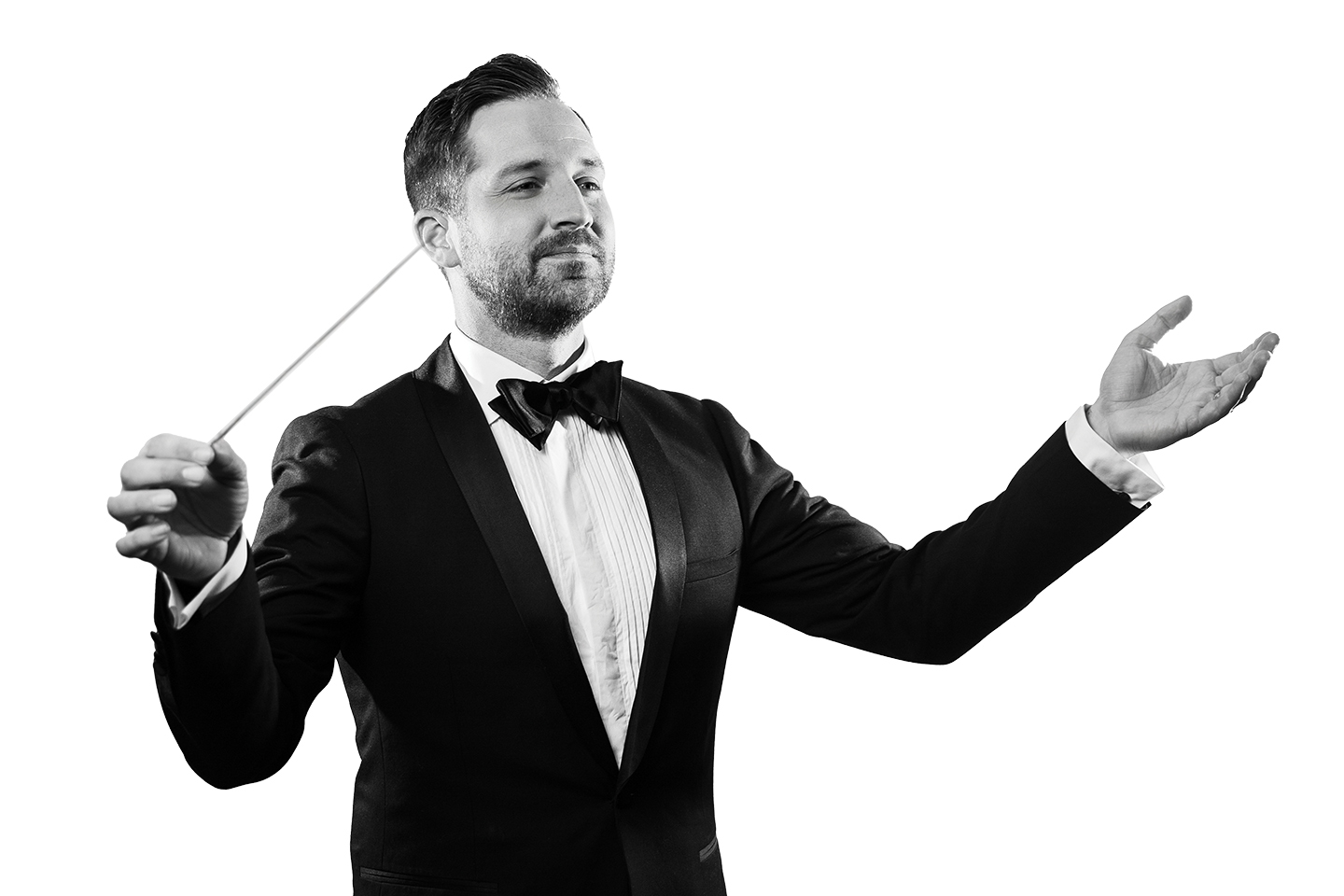
DR. CAMERON WEATHERFORD
Assistant Professor of Choral Music, Lee University
Even at 9 years old, Dr. Cameron Weatherford knew he wanted to be a musician; however, his path to choral music was much less clear. It wasn’t until he began his undergraduate degree at Louisiana College that he felt a spiritual calling to delve into this specific art form.
“The primary lesson I’ve learned from my journey to this point is seeing how God is constantly orchestrating our lives, even when we don’t see it,” shares Weatherford.
In 2021, Weatherford began his role as a professor at Lee University. In this position, he conducts the Ladies of Lee, the Choral Union, and teaches courses in both undergraduate and graduate choral music.
While every ensemble that Weatherford has directed has had a tremendous impact on him, he has a great fondness for the Ladies of Lee, which he began directing in 2022.
“Having the privilege of conducting the Ladies of Lee at Lee University has been one of the most rewarding experiences of my career,” shares Weatherford. “You aren’t handed high-quality, highfunctioning ensembles like this very often in this career. This is a testament to the previous directors who built these foundations.”
Just this past June, Weatherford had the opportunity to conduct the Ladies of Lee at the L’église de la Madeleine in Paris. However, his adventures don’t stop there. In March of 2025, Weatherford will return to Carnegie Hall for his third performance in the world-renowned venue, following in the footsteps of many accomplished musicians.
“I certainly have never felt like I belonged there,” Weatherford shares, “but that hasn’t stopped me from cherishing every minute of it.”
No matter where Weatherford conducts or what he accomplishes, Weatherford feels that he owes it all to his students in both Louisiana and Tennessee.
“I want to make sure that my students, past and present, understand that they deserve the credit for any accolade,” finishes Weatherford. “As I remind them, my back is to the audience.”
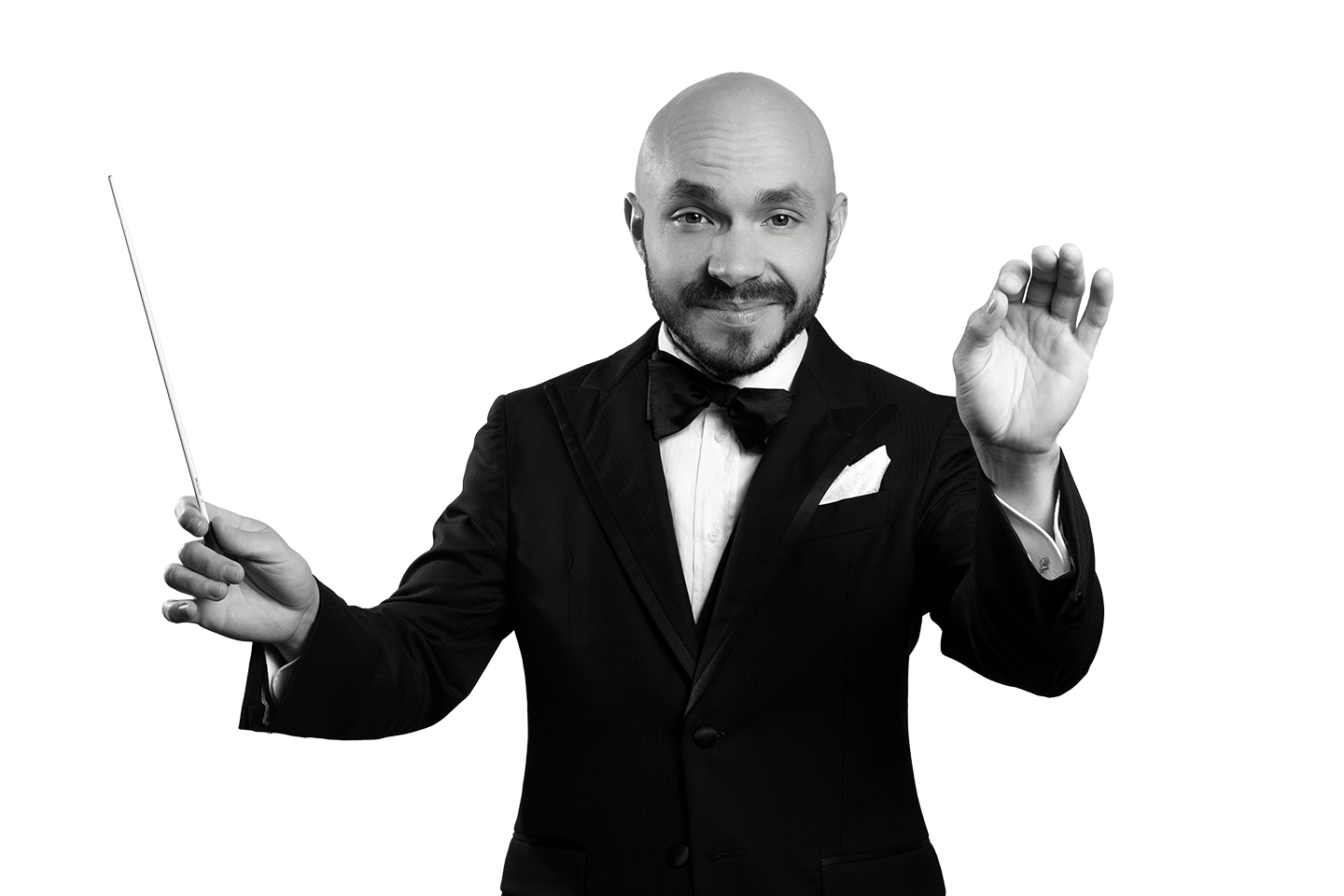
ISMAEL SANDOVAL
Assistant Conductor, Chattanooga Symphony & Opera
For Ismael Sandoval, music isn’t just a career or hobby, it’s also a way to give back to those in his community. Specifically, he’s passionate about bringing music to the places that need it most, like nursing homes, homeless shelters, and other underserved communities.
“There is a beauty that comes from working together with a large group of people on a shared goal,” says Sandoval. “Through music, we shatter differences that divide us and find common ground amongst our shared goal of bringing our music to life!”
In fact, during his time in Boston working with the Eureka Ensemble, he helped form the Boston Women’s Choir, a group comprised of women experiencing homelessness and poverty in the area. Sandoval even went on to replicate this group here by creating the Chattanooga Women’s Chorus with the same goals in mind.
Now, Sandoval works as the assistant conductor at the Chattanooga Symphony and Opera as well as the music director at First Christian Church. While only moving to Chattanooga in 2020, Sandoval is already breaking down musical barriers in the city.
In February of 2023, Sandoval played a large role in bringing the Bessie Smith concert to life, an idea started by Neshawn Calloway, a vocal music educator in Hamilton County. The goal was to present Smith’s music on an orchestra stage and to a broad audience.
Sandoval shares, “I was moved to tears when a lovely elderly woman approached me and said, ‘When I was growing up, people like me (pointing to her skin) were not really welcomed into this venue, and to see how far we’ve come and to hear the music of Bessie Smith and these other fine composers on this stage means the world to me.’”
Making connections like these with both his ensembles and his audiences is the most fulfilling part of being a conductor. Sandoval says, “There is never a day that I am not eternally grateful for the work that I do and the people I get to collaborate with!”
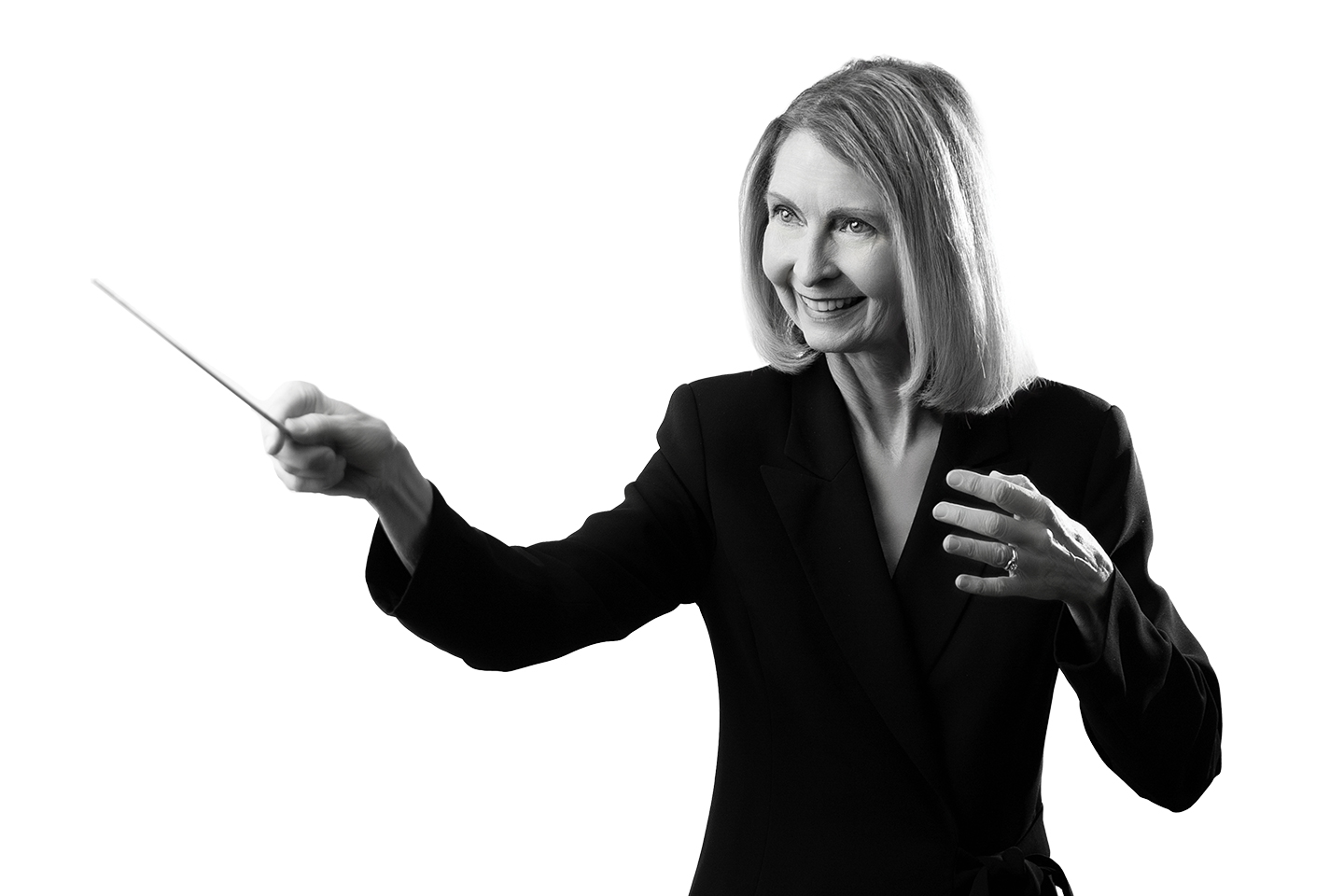
SANDY MORRIS
Adjunct Professor, University of Tennessee at Chattanooga
While some discover their calling later in life, Sandy Morris started her life’s work early. “My love for music began in kindergarten when I watched my teacher play piano during nap time,” says Morris. “I began piano at 7, viola at 9, and flute at 12.”
After ninth grade, Morris knew she wanted to pursue a career as a music teacher or as a conductor. She began teaching flute and conducting a youth orchestra while working on her undergraduate degree.
“As a young student, I wanted to enable others to experience the joy and camaraderie of making music together that I had experienced,” shares Morris. “Music is an art form that can provide so much self-actualization and joy, as well as a means of communication with others.”
Now, for over 40 years, Morris has directed orchestras, choirs, and bands and taught in schools across Chattanooga. From her first teaching job at Tyner Junior High, and later at the Center for Creative Arts, to a 24-year tenure with the Chattanooga Youth Symphony and much more, Morris has developed a diverse and well-established career.
Most recently, Morris served as the conductor of the UTC Symphony Orchestra, an approximately 55-member group comprised of present and former students, UTC staff, and other community members.
“It was truly a dream position for me,” shares Morris. “I hold two master’s degrees from UTC, and it was a joy to join the faculty.”
While Morris retired from the orchestra this past May after it went through reconfiguration, she will stay on staff at UTC as an adjunct faculty member. Morris will also continue as music director for Good Shepherd Lutheran Church, a role she has held since 2001.
Despite her long list of accolades and accomplishments, Morris most values how her career gave her the opportunity to share her love of music with her family.
“My husband has played or sung in most of the adult ensembles I’ve conducted, and our son was in my youth orchestra and church ensembles,” says Morris. “I have been blessed to be able to make music with my family, which makes my career even more rewarding.”
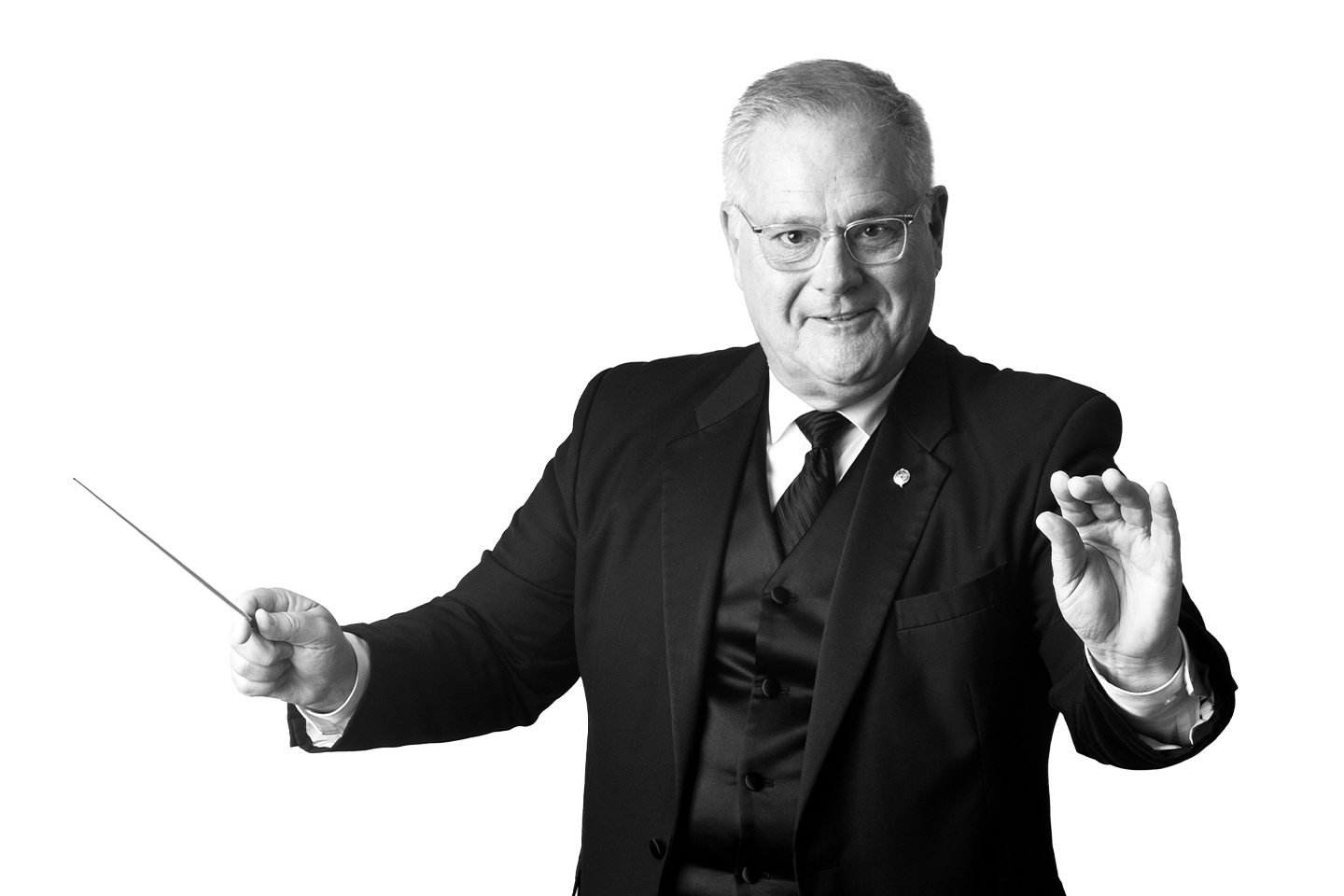
RANDALL COLEMAN
Director of Bands, University of Tennessee at Chattanooga
For Professor Randall Coleman, being drawn to the music teaching profession was inevitable, all thanks to his high school choral director.
“I wanted to be just like her when I grew up,” shares Coleman. “She not only taught her students about music and artful performance, but she genuinely cared for her students and their success. She continues to be a role model for me to this day.”
However, the path to the arts was anything but easy, especially since Coleman’s hometown had very limited opportunities for him to practice his craft.
“My parents had to drive me over an hour away for lessons,” says Coleman. “But I was able to join band as a seventh grader, thankfully!”
Coleman went straight into his public school teaching career after graduating from Jacksonville State University in 1982. After teaching as a high school director for 25 years, and racking up experiences such as two performances at Carnegie Hall, Coleman became the associate director of bands at the University of Alabama, where he served as one of the directors of the Million Dollar Band.
As of 2021, he’s traded out his “Roll, Tide!” for “Go, Mocs!” as he holds the position of director of bands and professor of music at the University of Tennessee at Chattanooga.
While Coleman admits that being an educator is not for the faint of heart, it gives him the unique opportunity to build relationships with his students and serve as a role model, just as Coleman’s teacher was to him.
“The most fulfilling aspect is easily watching my former students becoming successful and happy and making a difference for others in the world,” he says.
In fact, Coleman states that its these relationships that make the music so powerful in a band or ensemble.
“If there isn’t a relationship, there is no music,” says Coleman. “There may be notes, rhythms, words, and rests, but there is no music. The relationships that we build with our students (band members) is where the true music comes from.”
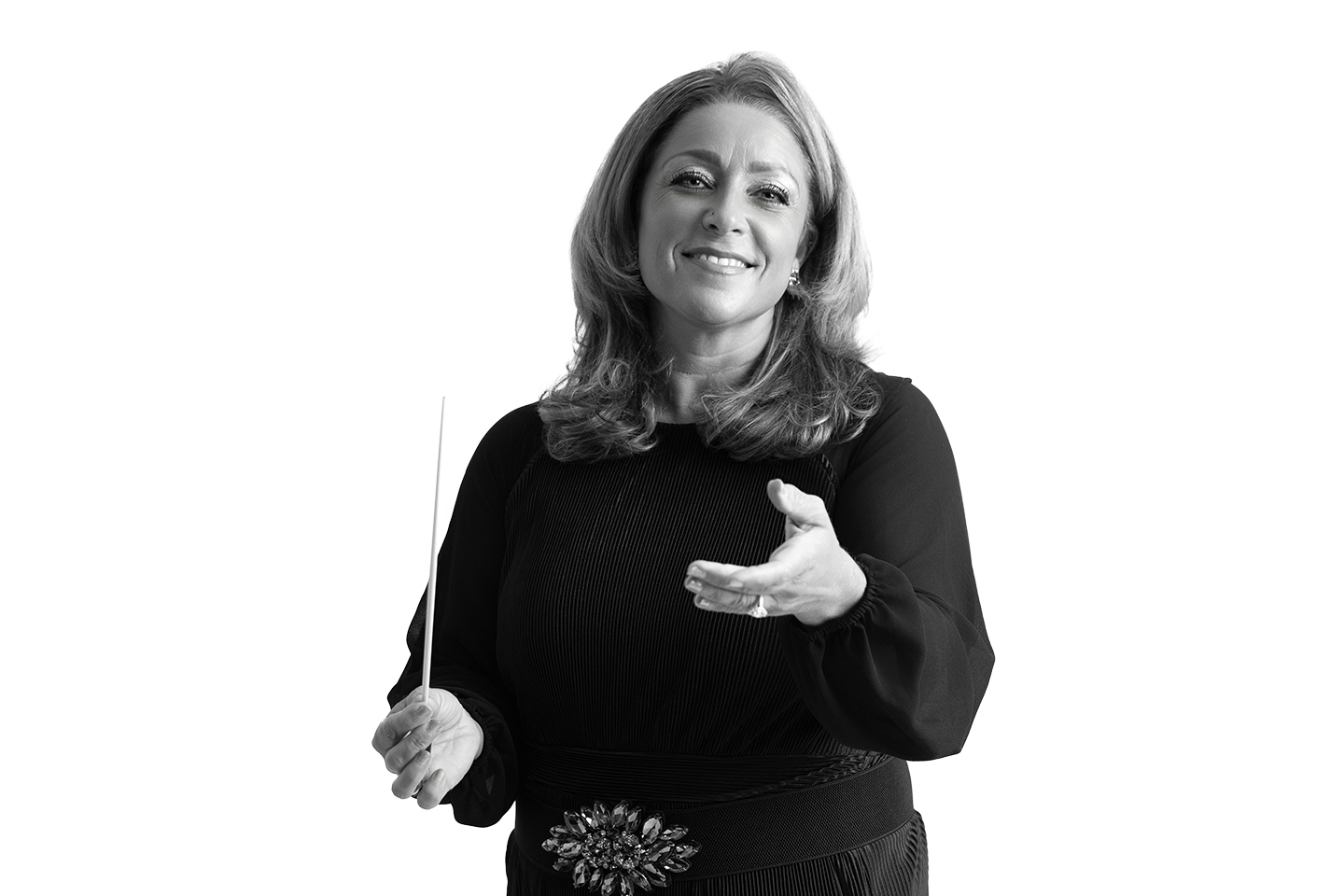
SARAH PEARSON
Music Director and Founder, The Cleveland Orchestra and Chorus of Tennessee
From conducting Les Misérables at the Tivoli to performing at Carnegie Hall and creating professional recordings in Bulgaria and Ukraine, conducting has taken Cleveland-local Sarah Pearson around the globe.
“I think every aspect of my music journey up until I began conducting drew me into the industry. Every piano, voice, and flute lesson, and then eventually my undergraduate and graduate school education,” shares Pearson. “Ultimately, the music itself. I could not imagine doing or being part of anything else.”
Currently, Pearson serves as music director and founder for The Cleveland Orchestra and Chorus of Tennessee, the music director and conductor for The Cleveland Pops, and assistant conductor for the Symphony of Northwest Arkansas. When not conducting, Pearson can be found teach ing music at the Chattanooga Girls Leadership Academy and as an adjunct music professor at Cleveland State Community College.
With so many roles in the community, Pear son’s days are often filled with different musical responsibilities.
“After teaching during the day, my evening work begins with preparing for my conducting jobs including recording video introductions and administrative duties for the groups I direct, but it ends with my favorite part, studying scores,” says Pearson. “Yes, you have to love what you do to burn the candle at both ends, but it’s so worth it.”
In fact, it’s her true love of music that contributes to Pearson’s success and the quality of the orchestras that she leads.
“As a conductor, if I am not 100% invested in the work, then neither will the musicians be,” shares Pearson.
While a career in conducting can be challenging, Pearson admits that the journey is rewarding and well worth it.
“It’s a path that demands total and complete passion. Those who are truly passionate about conducting will always find a way to make it work, fueled by their love for the art,” shares Pearson. “This often means forming groups, conducting, and even performing for free, simply because their dedication is that strong. Belief in your passion is what will carry you through.”

DAVID LONG
Conductor and Artistic Director, Chattanooga Bach Choir and Orchestra
With the approach of the 2024-2025 season comes David Long’s 20th season with the Chattanooga Bach Choir and Orchestra, where he has served as the conductor and music director since 2005.
However, his conducting experience started years earlier in 1989 when he conducted his first church choir for a three-month stint. From there, he served as a conductor of a youth choir at a church in Louisville, Kentucky.
“These humble, but all-important early experiences started to fuel the desire to make music with talented musicians,” says Long. “Church music allowed me to have my first experiences with hiring professional orchestra musicians for special services or concerts.”
Long continued to utilize this passion in his work at the Bach Choir. Throughout his time there, Long has worked with the board, musicians, and local union to transform the choir “from a community-level organization to a professional organization,” Long says.
It’s no surprise that one of Long’s favorite conducting memories happened on the Bach Choir and Orchestra’s stage. In fact, it was just this year during the choir’s dress rehearsal for Bach’s St. John Passion.
“As the choir was singing a cappella on a text which imagines the final resting place of the faithful, a tenor on the front row began to shed tears,” says Long. “Just then, the tenor to his left places his arm on the shoulder of the weeping singer. The orchestra joined a few measures later, and I at the podium had the best place to view this most spiritual and human of moments.”
Long admits that being a leader is both the most challenging and rewarding aspect of being a conductor.
“As a leader, you can only lead people to places you have already been. Therefore, communicating what you can do or not do for an organization is crucial,” shares Long. “It takes a team to go anywhere, so finding the right people who want to take the journey with you is very important.”





